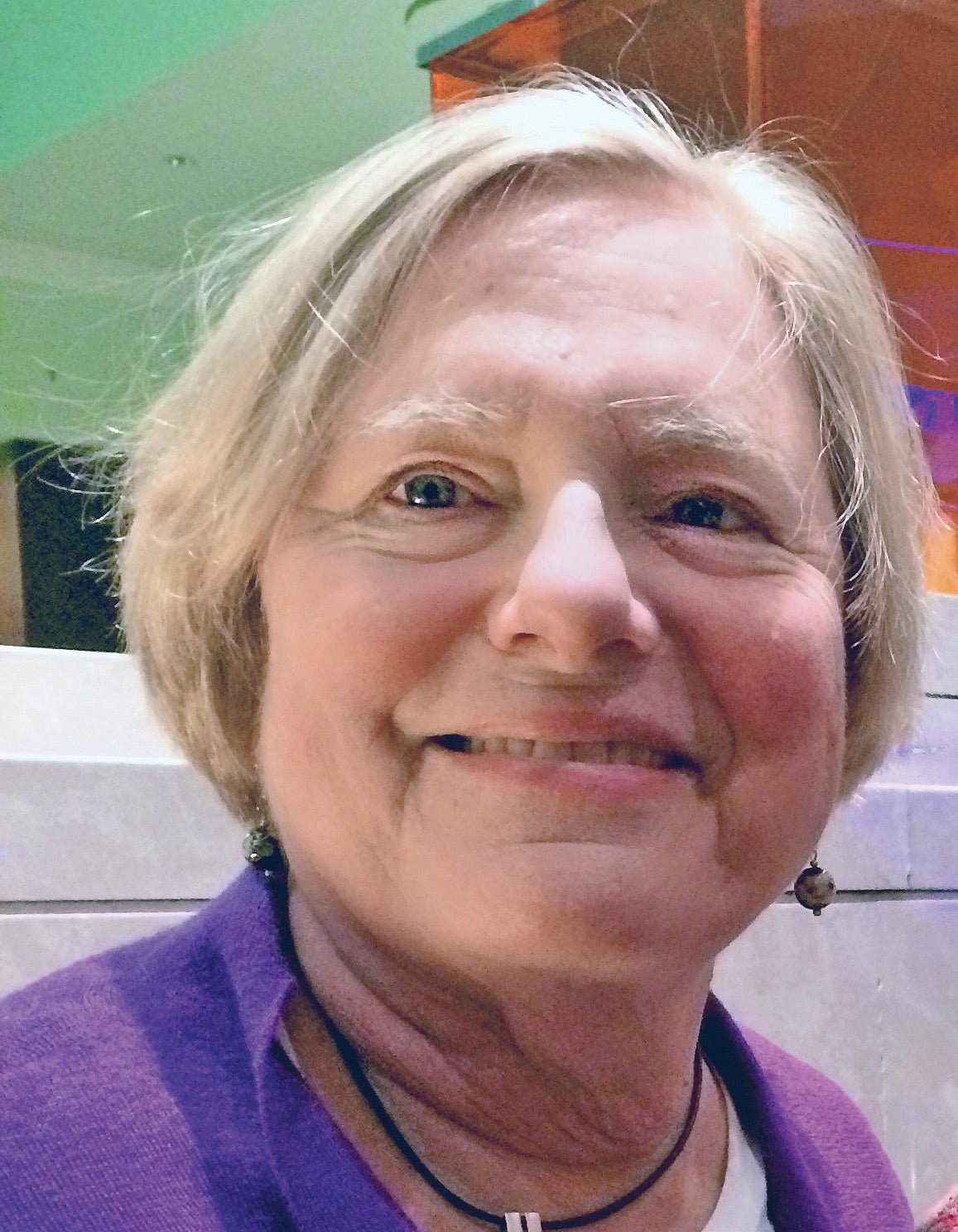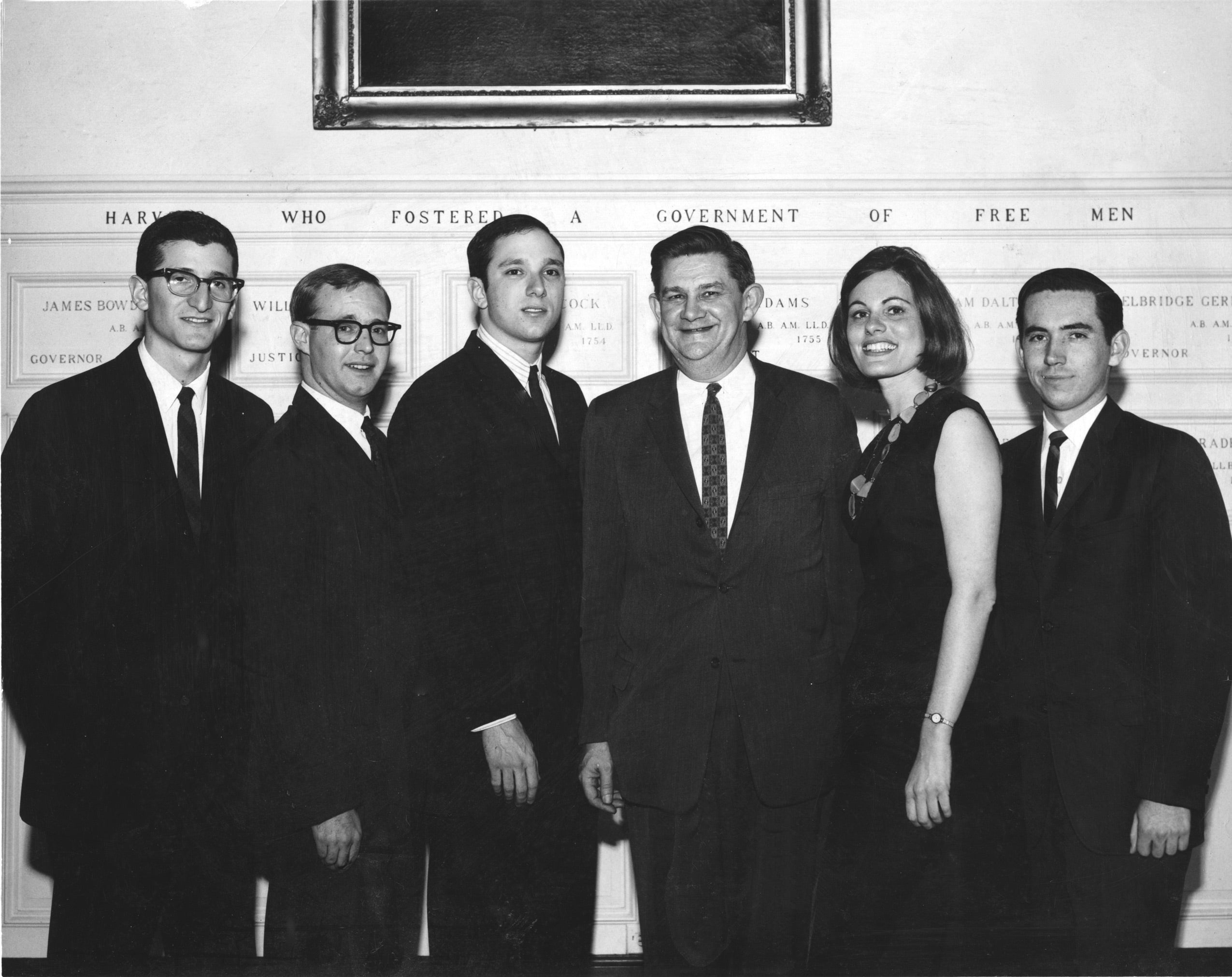
In the fall of 1962, Caroline “Cal” Simon ’65 started at Harvard Law, one of 23 women in a class of 540. Her reflections on the experience are perfectly preserved in dozens of sharply witty letters she wrote to her family—letters she rediscovered when her father died. Together, they give an indelible sense of life at the school in the mid-1960s, and specifically, life as a woman there, a decade after women were first admitted. (Simon and her female classmates were invited over to one of the now famous dinners at Dean Griswold’s, where they were asked, one by one, to justify taking a man’s place in the class.) The letters also hint at larger undercurrents—the brewing war in Vietnam, the changing place of women in society, the ongoing Cold War.
Soon after Simon arrives, she writes home describing the pall cast by the Cuban Missile Crisis, and that strange feeling of being immersed in the world of the law school while tectonic events are roiling the world outside: “How real the cold war has suddenly become; how strange it feels to discuss bombs and destruction in other than an academic manner.”
Simon writes of a different, but apparently no less visceral, kind of fear when she faces her first grilling in class. “Early this week A. James Casner decided to call on all the girls in Property I class. To understand the full import of that statement, shut your eyes and think of war breaking out or the invention of fire. … He has the nasty habit of destroying students in wholesale lots, but it is nevertheless a pleasure to attend his classes.” On that day, Professor Casner quizzed several women about the property issues surrounding engagement rings, but by the time he got to Simon, he’d moved on to asking about negotiable instruments. “To the amazement of the young men around me, I managed to calmly answer and discuss with the master for about fifteen minutes. … When he finished with the girls there was a bit of time remaining and he called on a male classmate and, with an hour’s worth of stored venom, destroyed the poor lad in two minutes. Sometimes inequality is not such a bad thing.”
Her letters home tell of the stress of preparing for her first moot court competition, of figuring out how to work with people even when she found them difficult, and of cramming for exams. (“I’m so tired I haven’t got the strength to worry. Bit by bit I am learning the law.”) But she found time for other things, too—taking trips to the beach (albeit with her Property book in hand); having beer and pretzels at a professor’s house with a group of classmates; writing a humor column for the HLS Record. As “Fenno,” Simon anonymously tweaked the life and culture of the law school. She was the first woman to write the column, though her editors decided not to let readers in on that secret. In her last installment, after she was left out of the paper’s staff picture and staff list in the yearbook, she aimed her humor at the newspaper itself:
“‘Listen, Fenno,’ the staff said in unison, ‘it’s the image. People think of you as the cool law school type—you know, a sort of young Jimmy Stewart. … We can’t have people finding out what you really are.’
In her column for the HLS Record, Simon anonymously tweaked the life and culture of the law school, including the newspaper itself.
“‘I guess it would have a demoralizing effect on the readers,’ I replied. ‘On the other hand, I don’t want to let my confreres down. They’ve been striving for equal rights around here for a long time.’
“‘Let’s not make an issue of this,’ said the Editor, glancing at the page proofs. ‘We’ll let you wear your “I AM FENNO” button on your dress on alternate Thursdays.’”
Before Simon graduated, and embarked on a career in which she ended up specializing in professional education in legal ethics, she wrote one last letter to her family, explaining the thing she would miss most: “I guess we are all ready to go on to the big world, but there is something about this cold dreary place with its tweedy people bursting with ideas that creates an electricity that it is not easy to leave behind.”
